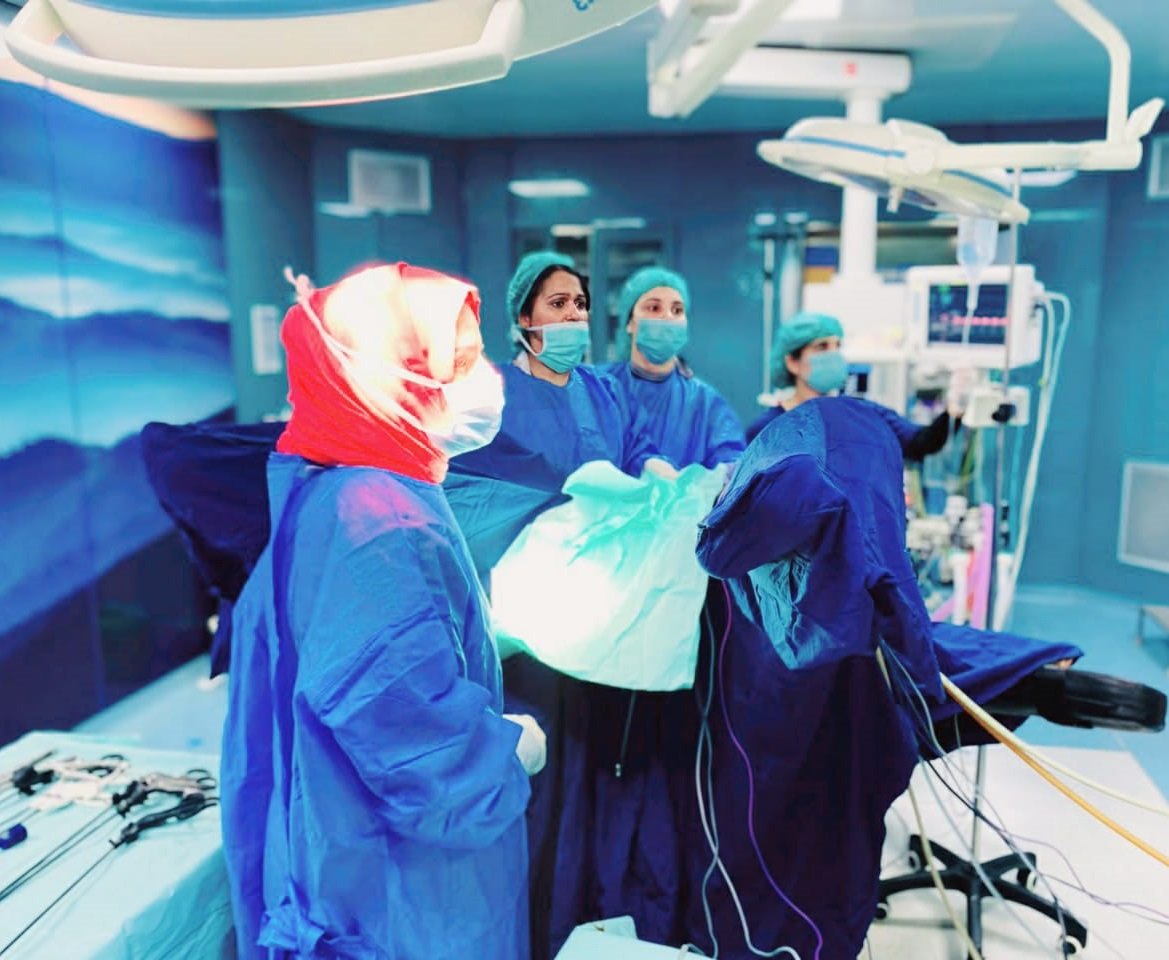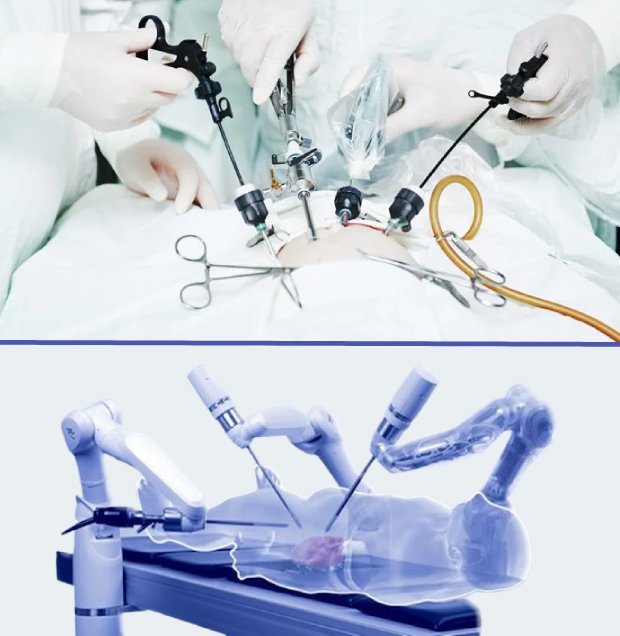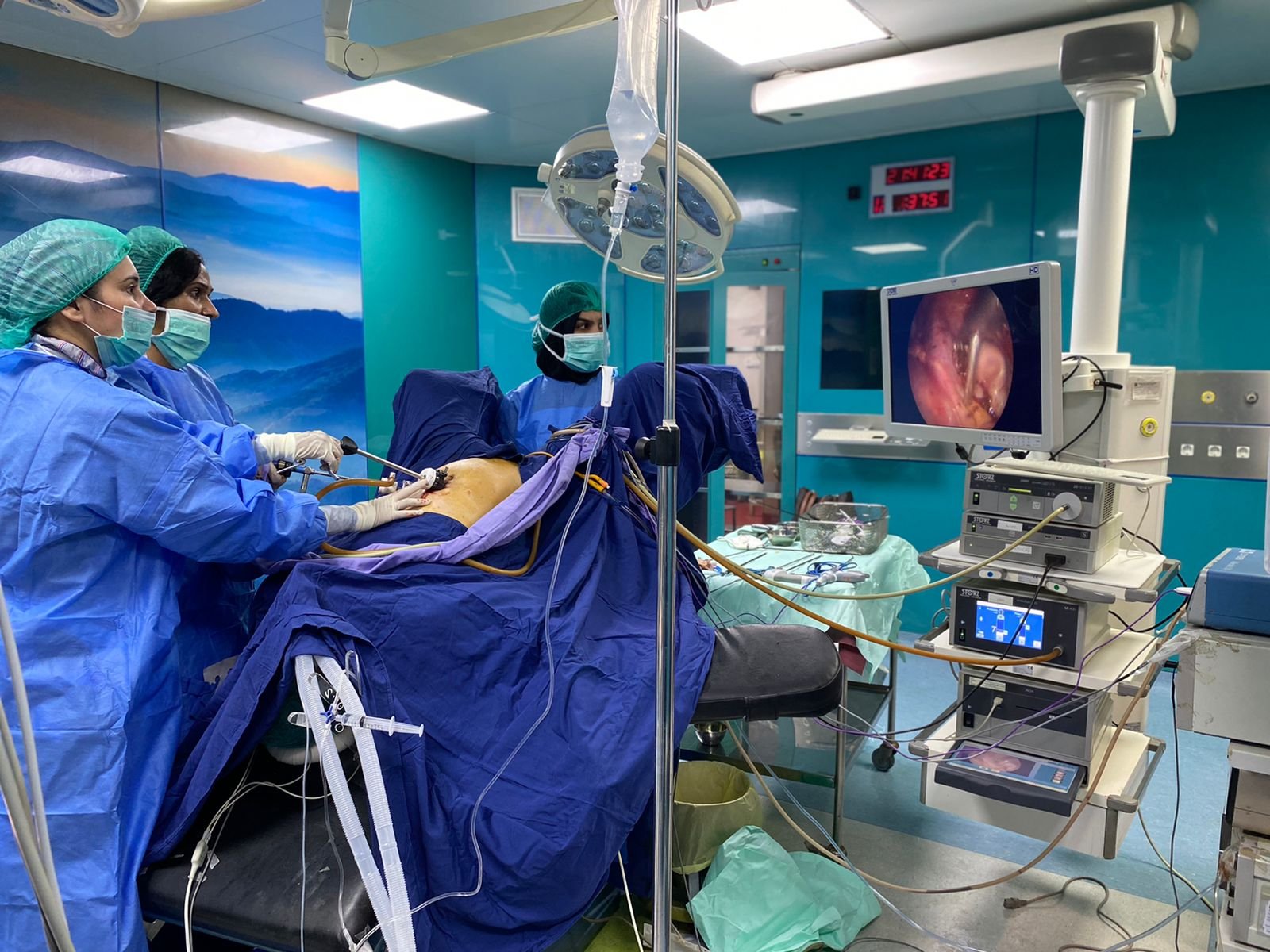Ovarian Cyst Treatment
Home > Gynae Treatments > Ovarian Cyst Treatment

An ovarian cyst is a fluid-filled sac or pocket that develops on or within the ovary. Ovarian cyst are common and can occur during the normal menstrual cycle or as a result of various conditions. They can vary in size, with some being very small, while others may grow larger.
These are the most common type of ovarian cyst and are usually harmless. Functional cyst form as a part of the normal menstrual cycle and include:
Follicular cyst: When the follicle that normally releases an egg does not rupture and release the egg, it can develop into a cyst.
Corpus luteum cyst: After the egg is released, the follicle usually forms a structure called the corpus luteum. If the corpus luteum fills with fluid instead of breaking down, it can become a cyst.
Functional cyst usually don’t cause any pain or symptoms and disappear with passage of time
These are less common and can be associated with abnormal cell growth, some examples are
Endometriomas: Cysts that form when endometrial tissue (tissue lining the uterus) grows on the ovaries.
Dermoid cyst: These cyst contain tissues like hair, skin, or even teeth and are present from birth.
Cystadenomas: Cysts that form from the outer covering of the ovary.
Most ovarian cyst are benign and resolve on their own without causing any symptoms or complications. However, larger cyst or cyst that cause twisting of the ovary (ovarian torsion) may lead to pain and other symptoms. If a cyst continues to grow, causes severe pain, or shows signs of being potentially malignant, further evaluation and treatment may be necessary.
Ovarian cyst can vary in size and nature, and not all cyst cause symptoms. In many cases, small ovarian cyst may go unnoticed and resolve on their own without any intervention. However, larger cyst or certain types of cyst can lead to symptoms. Common symptoms of ovarian cyst include:
It is important to note that these symptoms are not exclusive to ovarian cyst and can be caused by other conditions as well.
If a woman experiences persistent or severe symptoms, it is essential to seek medical evaluation. Early detection and proper management of ovarian cyst are important to prevent complications and ensure the best possible outcomes.

Identifying if an ovarian cyst has ruptured may involve recognizing specific symptoms. If an ovarian cyst ruptures, the following signs may indicate the occurrence:
It is important to note that these symptoms can also be associated with other conditions, and not all women with ruptured ovarian cyst will experience all of these symptoms. If you suspect that you have a ruptured ovarian cyst or are experiencing any of these symptoms, it is crucial to seek immediate medical attention.
During a routine pelvic exam, a doctor may identify the presence of an ovarian cyst by observing swelling on one of the ovaries. To confirm the diagnosis, they will likely order an ultrasound, which uses high-frequency sound waves to create images of internal organs. This imaging test helps assess the size, location, shape, and composition (solid or fluid-filled) of the cyst.
Additional imaging tools that can aid in diagnosing ovarian cyst include CT scans, which create cross-sectional images of internal organs, and MRIs that use magnetic fields to produce detailed internal organ images.
Since many cyst resolve on their own within a few weeks or months, immediate treatment may not be necessary. The doctor may opt to monitor the cyst by repeating the ultrasound in a few weeks or months to check its status. In some cases, no further monitoring is required, particularly if the cyst is determined to be a follicular or corpus luteum cyst.
However, if the cyst doesn't improve or grows in size, the doctor may request additional tests to explore other potential causes of symptoms. These may include a pregnancy test or hormone level tests to assess hormone-related issues, such as an imbalance of estrogen or progesterone.
The treatment course for ovarian cyst is contingent upon factors such as age, cyst type, and size, as well as the presence of symptoms. Your healthcare provider may recommend the following options:

Watchful Waiting: If you have a small, fluid-filled cyst and no symptoms, watchful waiting is a common approach. Regular reexaminations will determine if the cyst resolves on its own in a few months. Follow-up pelvic ultrasounds may be scheduled to monitor any changes in size or appearance.
Medication: Hormonal contraceptives, like birth control pills, can prevent ovulation, reducing the likelihood of new ovarian cyst. However, existing cyst may not shrink with this treatment.
Laparoscopic Surgery: Large, non-functional, growing, or painful cyst may warrant removal. Some cyst can be extracted without taking out the entire ovary (cystectomy). Minimally invasive laparoscopy with a laparoscope and small incisions is often utilized. Laparoscopic surgery for ovarian cyst offers several advantages over traditional open surgery, such as smaller incisions, reduced postoperative pain, shorter hospital stays, and faster recovery times.
If an ovarian cyst develops after menopause, there may be a risk of cancer. In such cases, consulting a gynecologic cancer specialist is essential. Treatment may involve the removal of the uterus, cervix, fallopian tubes, and ovaries, and could also include chemotherapy or radiation.
The appropriate treatment plan will be determined by your doctor based on individual factors. It is crucial to prioritize early detection and proper management to achieve the best possible outcomes for ovarian cyst.
We take immense pride in hosting the finest minimal invasive surgery (laparoscopic surgery) team in Lahore, dedicated to providing exemplary care for ovarian cyst treatment. Our esteemed team comprises highly skilled gynecological surgeons with vast experience in performing laparoscopic procedures. Using best technology and advanced techniques, we ensure precise and minimally invasive cyst removal. Patient well-being is at the core of our approach, and we offer personalized treatment plans tailored to each individual's needs. With a compassionate and patient-centered approach, we strive to deliver the best possible outcomes for women dealing with ovarian cyst, establishing ourselves as the top choice for minimal invasive surgery in Lahore
Contact UsCopyright @ . Design By Blizin Technologies